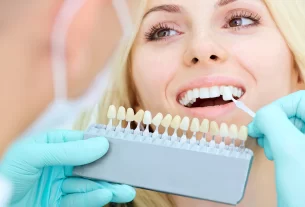You’ve probably heard about Testosterone replacement therapy (TRT). This is a revolutionary therapy that has left tongues wagging for so long due to its effects on enhancing one’s well-being. There are so many benefits of TRT apart from enhancing sexual function. These benefits range from boosting one’s energy levels to enhancing one’s mood and suppressing one’s depressive symptoms. However, most people raise one issue i.e., hair loss. You could also be wondering: ‘How does TRT affect hair loss?’ or ‘What’s the connection between TRT and hair loss?’ While TRT does not directly cause hair loss, increasing testosterone can induce androgenic alopecia if the patient is genetically sensitive to the hormone DHT (dihydrotestosterone). Androgenic alopecia is sometimes referred to as female-pattern or male-pattern baldness. It’s the leading cause of hair loss in both women and men. But don’t worry! There are so many ways to manage hair loss from Testosterone Replacement Therapy.
This blog by experts from New You Medical Center, a leading medical center for residents in Houston, TX, debunks the relationship between TRT and hair loss and also highlights the different ways of managing hair loss from testosterone replacement therapy (TRT). Don’t jeopardize the benefits of TRT due to a worry about hair loss. Contact New You Medical Center for evaluation and more information. Now, let’s read through and understand the connection between TRT and hair loss.
What Is Testosterone Replacement Treatment (TRT)?
Testosterone replacement therapy (TRT) is a treatment that includes raising testosterone levels when your body’s production declines. The hormone is supplied via a transdermal patch, skin gel, nasal gel, implant, injection, or oral tablet, raising your levels to offset the consequences of aging-related testosterone deficiency. Testosterone replacement therapy (TRT) has been demonstrated in studies to enhance sexual function, energy levels, sexual drive, muscle mass, strength, and overall well-being in men. TRT is common among older men as age is the leading cause of low testosterone with every 2 in 10 men above 50 years suffering from low testosterone.
One of the most discussed concerns is TRT and hair loss. Most people don’t understand how the two are connected. One would be dumb to avoid Testosterone Replacement Therapy (TRT) due to this concern without first understanding how the two relate. Now let’s discuss the connection between TRT and hair loss.
TRT and Hair Loss: What is The Connection?
Just like with any prescription medication, there is a chance of negative effects. Potential hair loss is something that some guys may be concerned about. Testosterone alone does not cause hair loss. Indeed, genetics is the most important element influencing hair loss. For example, almost 95% of male hair loss is caused by androgenetic alopecia, which is purely hereditary. In addition, having some genetics can make one more susceptible to DHT’s (dihydrotestosterone) effects which is the main hormone that dictates hair loss. This means that although TRT does not directly cause hair loss, it can help hasten the process in men who are already genetically predisposed to hair loss.
However, don’t worry! There are solutions for individuals who are genetically predisposed to hair loss but still want to use TRT to enhance their well-being.
Managing Hair Loss from Testosterone Replacement Therapy (TRT)
- Medication Complementation. Some drugs can be used concurrently with TRT to avoid the hair loss effect. These drugs include ones like finasteride (this one works by stopping the synthesis of dihydrotestosterone from testosterone) and minoxidil (this one works by boosting blood flow to the scalp thus encouraging the development of thicker and longer hair).
- Dose Adjustments. This would involve reducing the dosage or changing the type of testosterone that is being used and observing if the hair loss effect is minimized.
- Lifestyle Modifications. Lifestyle changes can help improve hair health and reduce hair loss with TRT. Stress management approaches, such as mindfulness or relaxation exercises, can help prevent stress-induced hair loss.
- Specialized Interventions. This would involve consulting a dermatologist or a hair loss expert for tailored treatment options, for instance, platelet-rich plasma (PRP) treatment or hair transplantation to reverse the hair loss effects as a result of TRT.
New You Medical Center Offers the Most Effective Testosterone Replacement Therapy in Houston, TX.
We’ve now all understood the connection between TRT and hair loss. We’ve understood that it does not cause hair loss but only hastens hair loss in individuals susceptible to hair loss genetics. Don’t put off this therapy option. Testosterone replacement therapy has helped numerous men live better lives and feel their best. Many guys report feeling more energetic and motivated after using TRT. Our staff at New You Medical Center is waiting to guide you through this wellness journey. So, why don’t you call us today and let us clear all your concerns regarding Testosterone Replacement Therapy (TRT)? We are the best in Texas for a reason!




